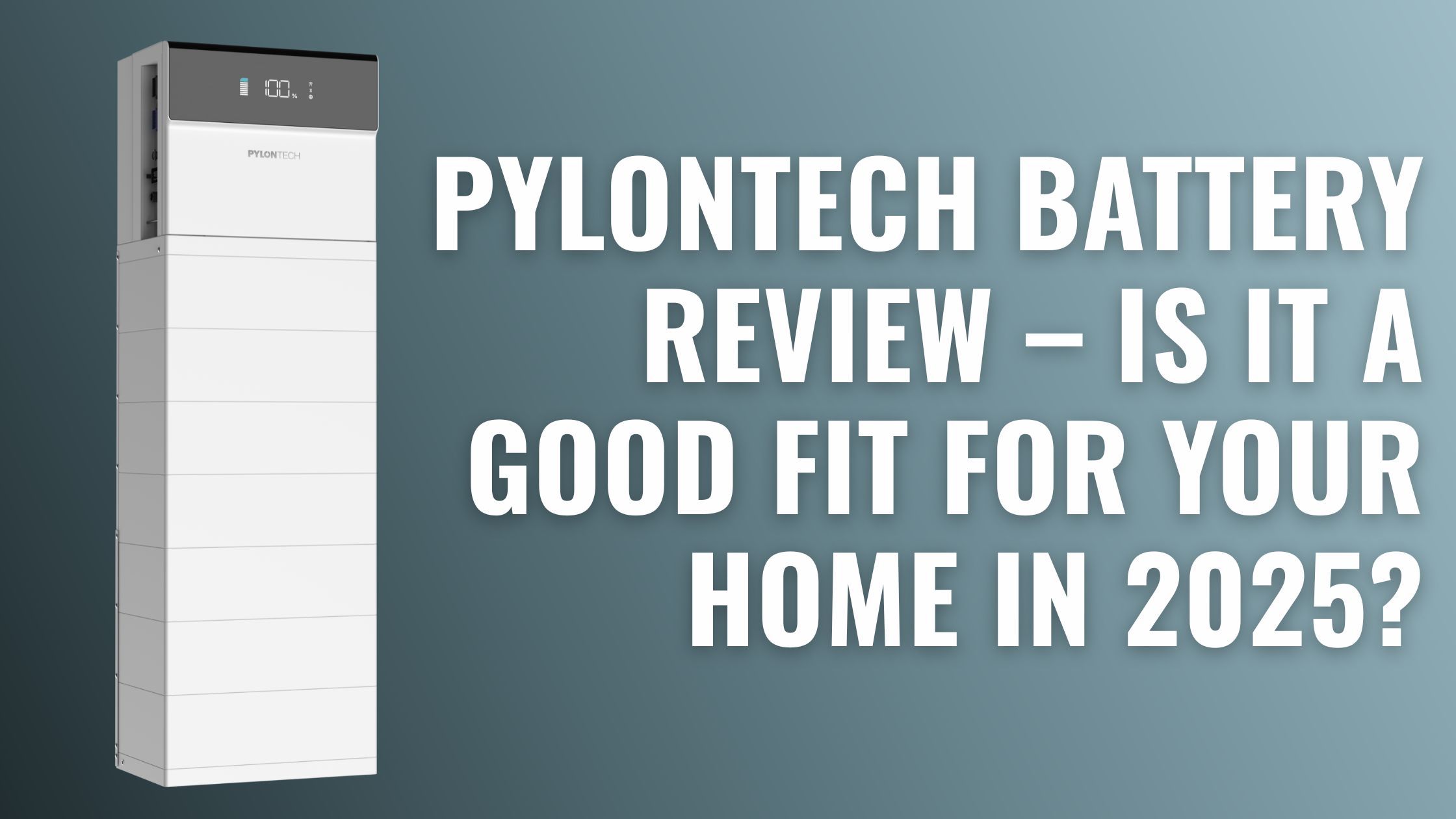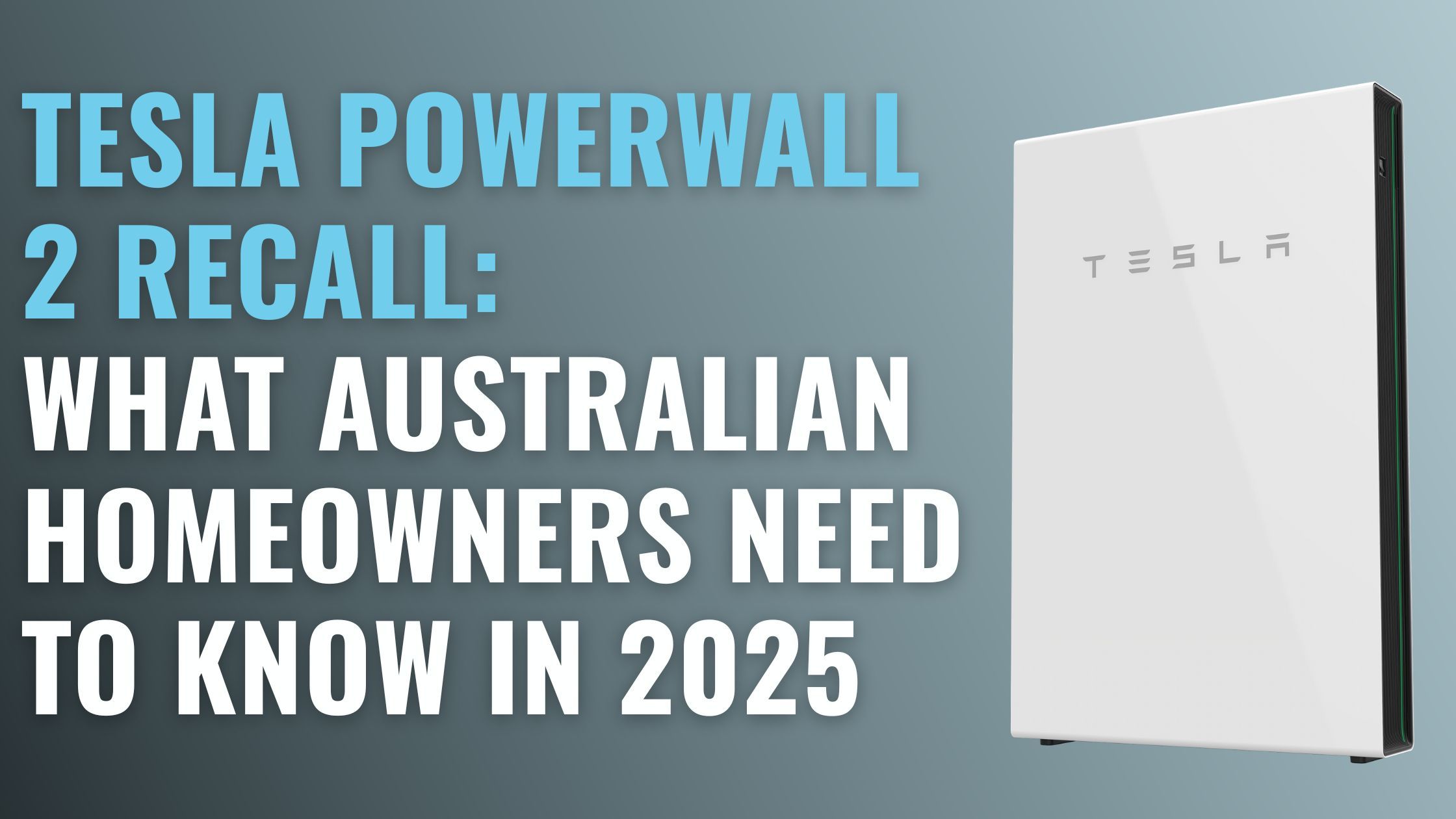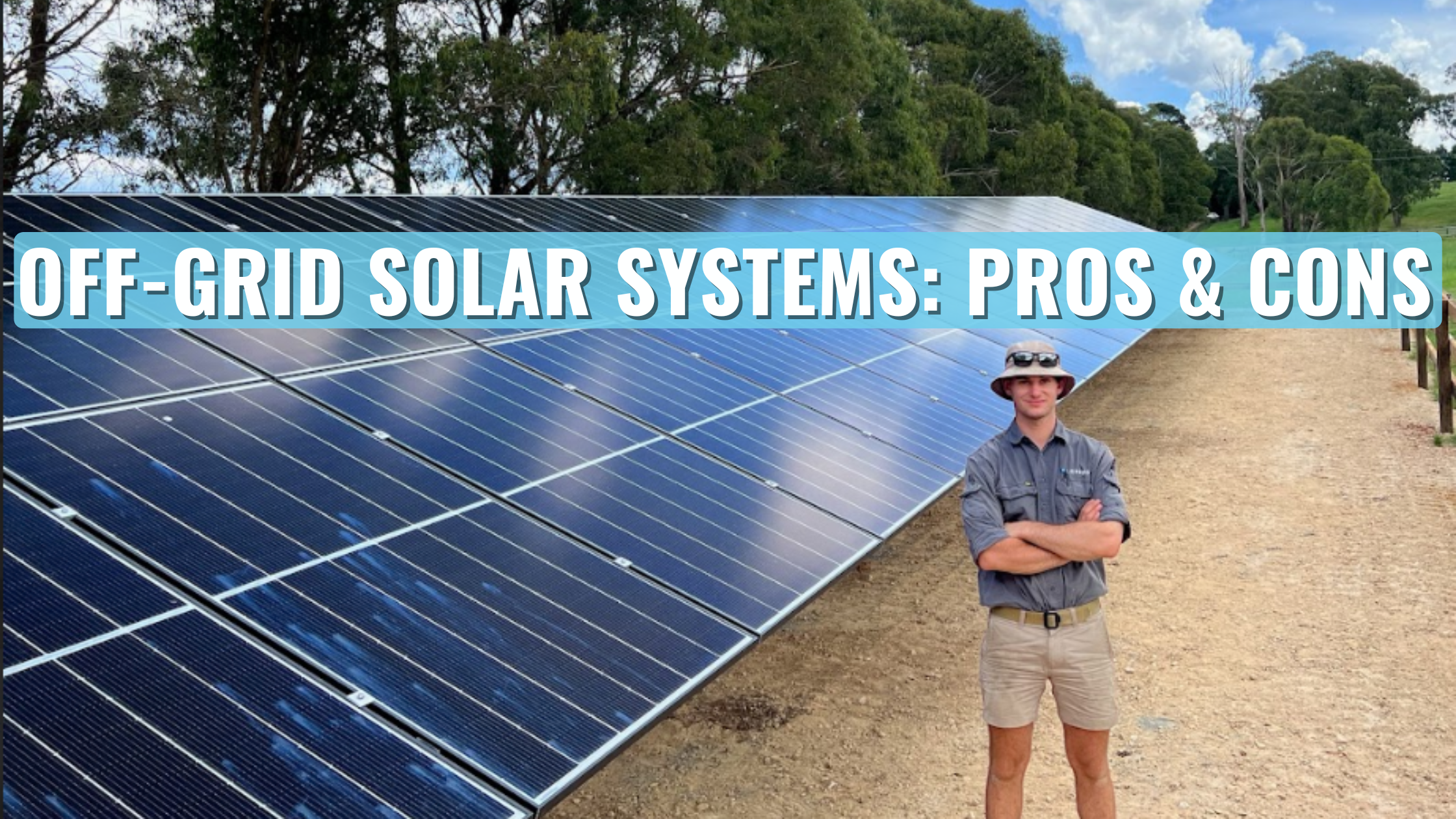
Written by Donna Wentworth
Last Updated: May 30, 2025
Off-Grid Solar Systems: Pros & Cons
Ever wondered what it’s like to live without relying on the grid?
Maybe your property’s too remote to connect easily, or maybe you’re just tired of rising electricity prices and want more control. Off-grid solar sounds appealing. No power bills, no outages, full independence. But is it really that simple?
At Lenergy, we’ve helped many homeowners explore off-grid living. Some go all-in. Others realise it’s not quite the right fit.
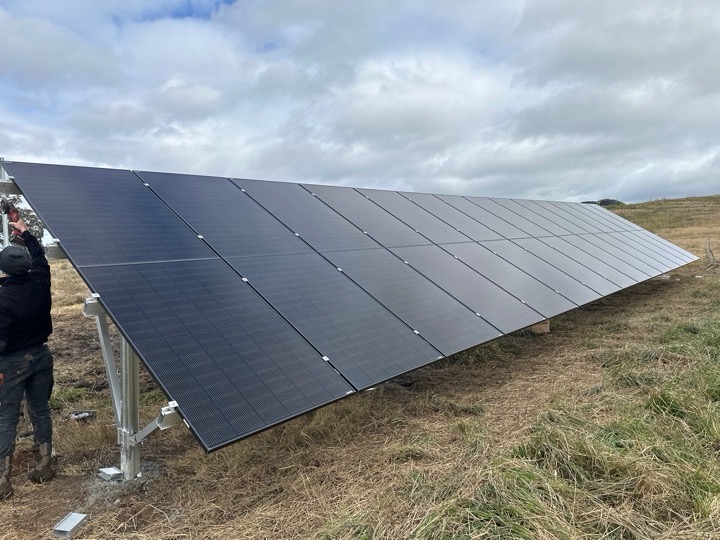
In this blog, you’ll understand the key benefits of off-grid solar systems, the downsides, and how to know if off-grid solar is right for you.
What Is an Off-Grid Solar System?
An off-grid solar system is a solar setup that runs completely independent of the electricity grid. It generates, stores, and supplies all the power your home needs, without any backup from the main grid.
Here’s how it works in simple terms:
- Solar panels collect energy from the sun.
- That energy is sent to a solar inverter, which converts it into usable electricity.
- Excess power is stored in solar batteries for use at night or during cloudy days.
- A backup generator is often included as a safety net for extended periods of bad weather or high usage.
Unlike grid-connected systems, you can’t fall back on the electricity network. That means your system needs to be sized correctly for your home’s usage and your lifestyle, so you don’t run out of power when you need it most.
Off-grid systems are common in rural or remote areas where connecting to the grid would be difficult or costly. But they’re also becoming more popular with people who want energy independence, even if the grid is technically available.
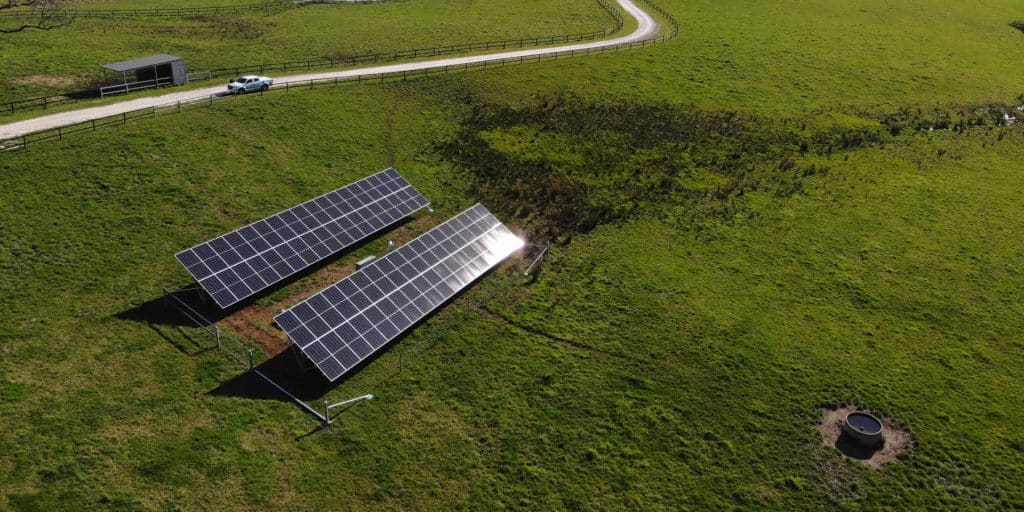
Why Go Off-Grid? The Main Benefits
So why do people choose to cut the chord from the grid entirely? It usually comes down to four key reasons:
1. Total Energy Independence
Living off-grid means complete energy autonomy. You’re no longer dependent on power companies, vulnerable to network failures, or exposed to fluctuating electricity rates. By generating and storing your own power, you gain full control over your energy supply—eliminating ongoing connection fees, unexpected price hikes, and the inconvenience of blackouts during storms or maintenance disruptions. This level of independence not only enhances reliability but also offers peace of mind, especially in areas where grid infrastructure is aging or inconsistent.
2. Perfect for Remote Properties
For homeowners living in rural or regional areas, connecting to the electricity grid can be logistically difficult and prohibitively expensive—often costing tens of thousands of dollars just to extend power lines to a property that’s far from existing infrastructure. These costs don’t even include ongoing network service charges or rising electricity rates.
In contrast, off-grid solar systems offer a self-contained energy solution, enabling complete energy independence without reliance on the grid. When designed correctly, these systems can meet the needs of modern households just as reliably, with the added benefit of avoiding grid outages and infrastructure delays. For many remote properties, going off-grid isn’t just an environmentally conscious decision—it’s a financially and practically smarter alternative in the long term.
3. Lower Long-Term Energy Costs
Although the initial cost of installing an off-grid solar system can be significant, it eliminates ongoing electricity bills entirely. Over the years, this can lead to substantial savings—particularly as traditional energy prices continue to rise. Many homeowners find that the money they would have spent on grid power eventually equals or exceeds the cost of their off-grid system, making it a financially smart long-term investment.
4. Sustainable Living
Off-grid solar systems draw energy from the sun (a clean, renewable resource). Allowing homeowners to power their homes without relying on fossil fuels or contributing to greenhouse gas emissions. For those committed to environmental responsibility, this approach significantly reduces your carbon footprint while promoting energy independence. It’s an ideal solution for individuals seeking a more sustainable, self-sufficient lifestyle that aligns with eco-conscious values.

The Drawbacks You Need to Know
Going off-grid has its perks, however it’s not for everyone. Here are the main trade-offs to be aware of:
1. Higher Upfront Costs
Off-grid solar systems generally involve a higher initial cost compared to grid-connected setups. This is largely due to the additional infrastructure required—such as larger battery banks, advanced inverters, and often a backup generator—to ensure consistent energy supply around the clock. In essence, you’re creating a fully independent power system capable of meeting all your energy needs without any external support. While this level of self-sufficiency demands a greater upfront investment, many homeowners see it as a worthwhile trade-off for long-term energy freedom and protection against rising grid costs.
2. You’re 100% Responsible for Your Power
Living off-grid means full energy independence—but with that freedom comes complete responsibility. If your system is undersized, poorly designed, or if your household consumes more energy than expected, you risk depleting your battery reserves—especially during winter months or extended periods of cloud cover. Without the safety net of the grid, even a few miscalculations can result in inconvenient (or even dangerous) power shortages. That’s why investing in a professionally designed system, accurate load assessments, and proper energy management habits is essential. Many homeowners also choose to include a backup generator as a safeguard for these unpredictable conditions.
3. Battery Maintenance and Replacement
Batteries are a critical component of any off-grid solar system, responsible for storing the energy needed to power your home day and night. However, they come with a limited lifespan. Depending on the battery chemistry—whether lithium-ion, lead-acid, or newer technologies—you can expect a replacement from anywhere between 5 to 15 years. While modern lithium batteries often require little to no maintenance, some systems (especially lead-acid) may demand regular checks on fluid levels, charge cycles, and temperature conditions.
Over time, these replacement and upkeep costs can add up, making it important to factor them into your long-term energy budget. Choosing a high-quality battery with a strong warranty and planning for its eventual replacement ensures your off-grid lifestyle remains reliable and stress-free.
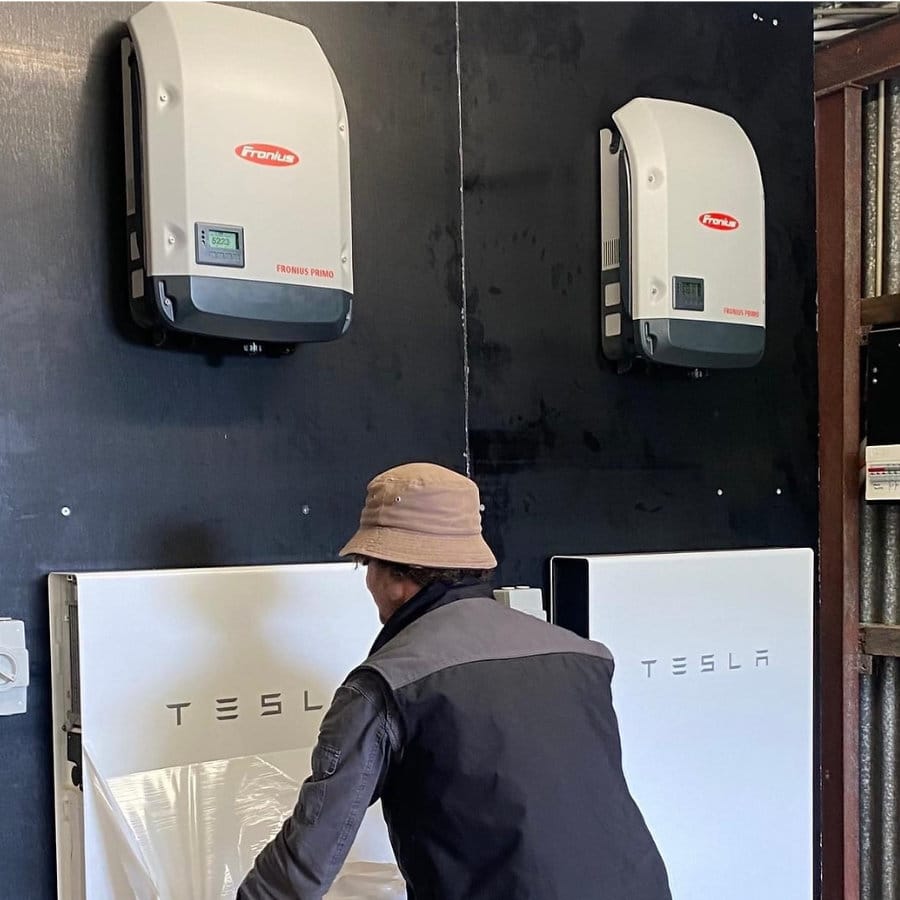
4. Not Ideal for High Energy Users
Off-grid solar systems are best suited to energy-conscious households with predictable and moderate electricity needs. If you have a large family, run a home business, or use multiple high-draw appliances—such as ducted air conditioning, pool pumps, electric ovens, or EV chargers—designing a system to meet those demands can be complex and costly. You’ll need a significantly larger solar array, increased battery storage, and potentially a backup generator to ensure consistent power supply year-round.
In many cases, high energy users may need to rethink their habits or upgrade appliances to more efficient models to make off-grid living feasible. That might mean switching to gas cooking, scheduling appliance use during peak sunlight hours, or staggering high-consumption devices to avoid overload. While not impossible, it does require a lifestyle shift and a deeper investment in system infrastructure to ensure comfort and reliability without access to the grid.
Is Off-Grid Right for You?
Off-grid solar isn’t a one-size-fits-all solution. Here’s a quick checklist to help you decide if it fits your lifestyle and goals:
It might be right for you if:
- You live in a remote or rural area where grid connection is costly or unreliable.
- You value energy independence and don’t want to rely on power companies.
- You’re happy to adjust your energy use to suit what your system can provide.
- You’re willing to invest upfront for long-term savings and security.
- You’re committed to a low-impact, sustainable lifestyle.
It might not be right if:
- You’re in a metro area with easy, stable grid access.
- Your household uses lots of power, especially during evening hours.
- You’re looking for the cheapest option right now rather than long-term value.
If you’re not ready to fully disconnect from the grid, a hybrid solar system offers a balanced alternative. By combining solar panels, battery storage, and a grid connection, hybrid systems provide flexibility—allowing you to store excess solar energy for use during peak times or outages, while still drawing from the grid when necessary. This setup can lead to lower electricity bills, increased energy reliability, and greater independence from utility price fluctuations.
Choosing the Right System for Peace of Mind
Going off-grid isn’t just a trendy move or a tech-savvy experiment—it’s a strategic decision rooted in your lifestyle, location, and long-term goals. For homeowners in remote areas or those seeking complete energy independence, a well-designed off-grid system can provide long-term reliability, energy savings, and peace of mind.
However, it’s equally valid if off-grid living isn’t the right fit for you. A hybrid solar system—combining solar, battery storage, and grid connection—may offer a more balanced solution, delivering energy savings and greater reliability without sacrificing flexibility.
What matters most is that you’re informed. Understanding the benefits, challenges, and realistic expectations of each option allows you to make the right decision with confidence.
Before making any commitments, it’s essential to speak with a reputable solar installation company—one that listens to your needs, provides transparent advice, and customizes a solution that works for you. At Lenergy, we’re here to help guide you through that process, whether you’re ready to go fully off-grid or exploring hybrid options tailored to your property and lifestyle.

Book a free consultation today and get expert advice tailored to your property, energy needs, and budget.

